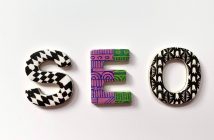When your company website is working well, it should be generating leads for your business, even while you sleep! However, many websites make simple mistakes that can hurt conversions, causing lower enquiries and sales.
Here are five common mistakes that cause lower website conversion rates.
1. Not having easy and clear calls to action
Your website’s call to action (CTA) is what tells visitors what you want them to do next. It should be clear, concise, and impossible to miss. Each page on your site should have a clear call to action. When I’m reviewing a site to find areas for improvement, I often find that the website might tell the visitor all about the company, and the services they offer, but then fails to give a clear CTA.
What do you want the visitor to do once they have read your page? A compelling CTA can be as simple as “Get a Free Quote” or “Call Us Now for Pricing”.
Sometimes as website will have good CTA on the home page, but then when people view the internal pages that explain the services or product offering, the visitor gets to the bottom of the page and there is no CTA recommending the next step. Every page should have a call to action, encouraging the user to take the next step. Otherwise, they’re more likely to leave your site without taking any action.
2. Making visitors hunt for your contact information
If a potential customer wants to get in touch with you, they shouldn’t have to search your entire website to find your contact information. Your contact information should be prominently displayed on every page, preferably in the header or footer.
If it doesn’t suit to have the phone number in the header, then having “Contact” as the last item in the main navigation is essential. Due to website norms, people have come to expect the “Contact” page to be on the navigation at the end. So don’t make people hunt for it! Sticking to the expected norms helps people find it easily and make contact.
Another mistake several businesses make with contact details is not having their phone number clickable. As of May 2022, 58% of all website traffic worldwide was from mobile devices (according to StatCounter). When mobile users view your contact page, they expect to be able to tap on your phone number to call. If your number isn’t clickable, it increases friction into the process of enquiring with your business.
3. Not being mobile-friendly
As just mentioned, 58% of worldwide traffic is on mobile devices. Every website nowadays is generally built to be mobile-responsive, so that it looks good on mobiles as well as desktops.
However, it is still very easy to overlook problems that crop up on the mobile experience of your site. Things to check include the flow of information – does the order make sense on the mobile view? Is the navigation easy on mobile? Are the calls to action nice and clear on mobile as well as desktop?
If your site isn’t mobile-friendly, you’re likely losing out on potential customers. Make sure you have tested the whole user experience on mobile as well as your desktop.
4. Failing to use social proof to build trust
Social proof is a powerful way to increase conversions. People are more likely to buy a product or service if lots of others have already bought it and said it is good. On your site include customer testimonials, reviews, logos of well-known companies that you’ve worked with, the number of products you’ve sold, or other metrics that provides the social proof to help build trust quickly.
5. Having a slow website
No one likes a website that takes forever to load. If your website is slow, potential customers are likely to get impatient and click away to another site. You may have paid for ads to get traffic to your site or invested in SEO (Search Engine Optimisation) to get your website found in Google, but the investment is wasted if a user clicks and then the site loads too slowly, so they click away. Make sure your website is fast and responsive to keep visitors engaged.
By avoiding these simple mistakes, you can make your website more user-friendly and increase your chances of converting visitors into customers.





